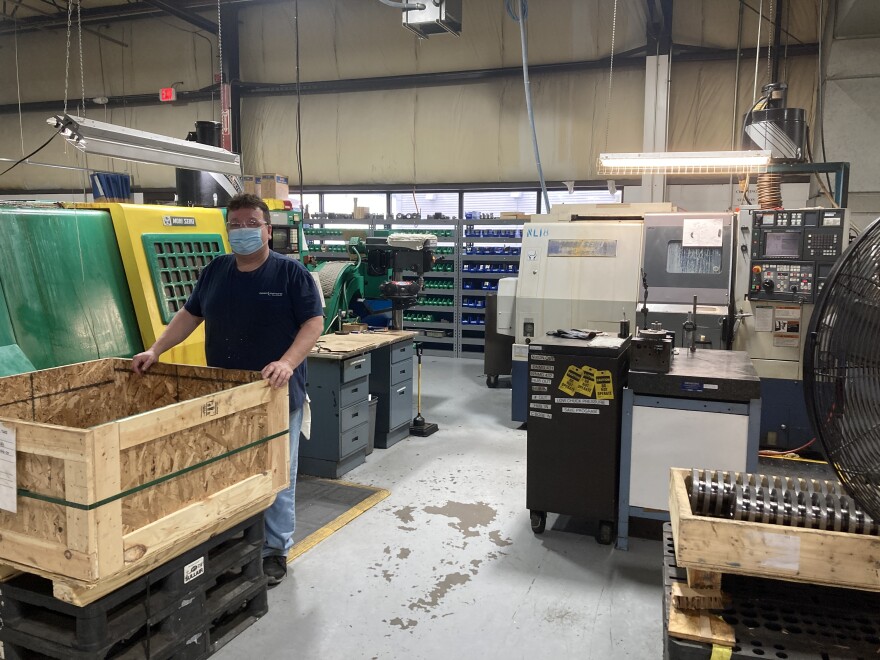A custom gear manufacturer with a factory in Solvay is doing its best to navigate fluctuating tariffs. Gear Motions mainly passes those costs along, affecting its customers down the supply chain. President and CEO Dean Burrows said the cost of business has increased overall in recent years, from labor and material to taxes and health care. He said tariffs are just another expense they pass along.
“If we’re importing something from the EU and we're getting a 27 1/2% tariff, we're just taking our pricing and upping it by 27 1/2% and telling our customers say these parts that you're buying, this is the impact of the of the tariff being applied,” Burrows said. “That is simply a line item. We don't control any of this.”
At the same time, he said the tariffs are having a positive impact. Burrows said several new customers who normally buy gears from China have asked if his company can make them instead. After all, re-shoring manufacturing is part of President Trump’s reasoning behind the tariffs. Burrows said, though, results are mixed.
“We do see some opportunity,” he said. “But we also see when even when a tariff is applied at 140%, the bridge to get to manufacture in the United States is still going to be a higher cost than even 140% tariff applied for something that is a low quality, high volume produced out of out of China,” he said.

Burrows said the company generally doesn’t import or export a lot of material. Still, the trade war introduces a level of uncertainty that he or his customers would rather not deal with.
“When you have 40% tariff and then it goes to 50. Now it's 100% then it goes back down to 30...it's very difficult for them to make decisions because they honestly don't know what their true costs are,” he said. “So to resolve some of this tariff uncertainty would be a good stabilizing factor for the U.S. economy.”
Burrows said there’s the risk that tariffs will eventually slow down his business and the economy by spiking inflation, causing their end customers to stop buying their products. Despite that risk, he said 2025 has actually been the best year they’ve had as a corporation.




